This is the second (and final) post in a two part series about my interview with Robert Herjavec. See Date with a Dragon: Meeting Robert Herjavec from Dragons’ Den for the first part.
I’ve never been great with small talk. Discussing the weather or the direction of my day always feels a little forced. But I know my first question to Robert Herjavec, author of Driven: How to Succeed In Business And In Life and co-star of Dragons’ Den and Shark Tank, has to bridge some common ground and get the interview started. Since he’s not wearing a pair of 3-inch funky Fluevogs or a BCBG blazer, I decide to open with cars.

[You people are SHOE CRAZY! After a dozen or so emails about my dang Fluevogs, I decided to photograph my interview outfit to appease the shoe fetishists out there. And I love EVERY single one of you. :)]
Herjavec owns a lot of exotic cars: two Lamborghinis, a Mercedes-Benz SLS AMG, a Rolls Royce Phantom, and a Bentley Continental GTCW — just to name a few. But there’s only one automobile I’m really interested in knowing about since I own one myself.
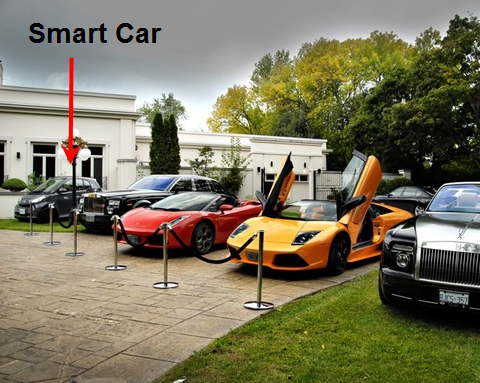
Kerry: I’ve been reading about all of your cars, and was surprised to find we own a car in common.
Herjavec: A Smart Car?
Kerry: Yes, a blue one. I’m Laughing, and only slightly miffed that he didn’t guess the Rolls Royce Phantom.
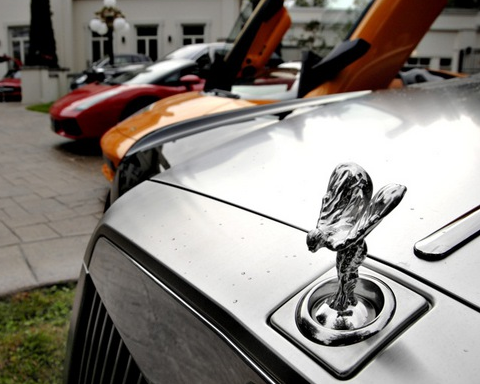
Question 1: What possessed to you buy a tiny Smart Car?
Herjavec: I love my Smart Car. I love it. I think it’s a beautiful car. I love the design. Mine is a little special, but it’s grey — it’s like this anthracite type of grey. It’s got these rims. It’s one of ten in the world. It’s very, very rare. It’s the rarest car I own.
Kerry: Did you buy it to be frugal, to save on gas?
Herjavec: I bought it to get into parking spots. Laughing. I like the look of it, and it just goes. It’s fun to drive. This is the Lamborghini of the Smart Car.
Question 2: What are your top financial success tips, for regular people?
Herjavec: You’ve got to have a handle on cash flow. How much is coming in, how much is going out. You’ve got to be careful, and figure out if you live in a fixed world or live in a flexible world.
Kerry: What’s a fixed world?
Herjavec: Do you have a job where you make fifty-two thousand dollars a year and no matter what you do you’re going to make fifty-two thousand dollars a year? If that’s the case, then you better get a budget.
Kerry: And a flexible world?
Herjavec: If you have a job where you can make fifty thousand or fifty-two thousand in commission, and you want to blow that other fifty on something — go for it. People aren’t realistic about their situation.
I think the other thing is you’ve got to invest for the long term. You’ve got to put some money away. There are bad days coming and there are good days coming. But you’ve got to be prepared for both.
People get into financial trouble when the unexpected arrives. You lose your job. You think your disability insurance pays 80 percent and lo and behold, they deny your claim. I mean, you need money for the bad times in life. You need money for the good times too.
[Read all his top money advice in: Robert Herjavec: 5 Tips for Financial Success]
Kerry: In Driven you say: ‘Everybody fails. The measure of success is not that you fail, but how you get up after you’ve been knocked down.’
Question 3: How have you failed? And how did you get up afterwards?
Herjavec: When the book first hit the bestseller’s list I Twittered I was so humbled by the fact that even one person bought my book. So a guy Twittered back: ‘I don’t think there’s a humble bone in your body.’ So I Twitter back and said: ‘No, no my friend. I have been knocked down so many times into the dirt, that taste will never leave my mouth. I have failed a million times, and I will fail many more.’ I’ve been lucky that no failure has been fatal in business for me. Some have been close but never fatal, and I’ve been able to ride my winnings.
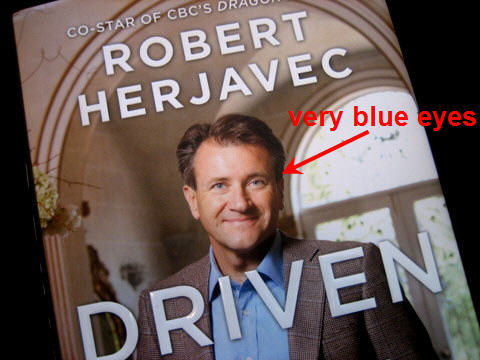
I always think that the minute you give up on you, it’s the beginning of the end. It all starts with your belief in your ability to get it done, and I think you just can’t give up on that. There are people who right now are hurting, there are people who are in dire straights, you’ve got to realize that there’s a greater purpose. If you’ve got a family and you have no money, you’ve lost your job and you’re on welfare and things are going bad, you have a greater responsibility than yourself in order to move it forward. And you’ve just got to keep going. I know it sounds trite and it’s hard, but it’s the same way that you view failure. You’ve just gotta go.
Kerry: One of my favorite sound bites on Dragons’ Den was when you told a complaining pitcher: ‘That is the biggest load of crap I’ve ever heard. I picked up the phone. I called the receptionist, and I got a meeting.’
Question 4: Why is picking up the phone so hard for some people?
Herjavec: It’s funny. While you were coming, the reason I was on the email is because we have a client of ours who owes us four million dollars — it’s a big bank. And so our CFO is trying to collect that money. And they told him they would pay him last Tuesday, and last Tuesday came around and this isn’t signed. So finally I’m like, just pick up the phone and call them, and he just can’t. He’s got this fear to do that.
It’s rejection. People don’t like conflict. I mean some people do but they are a small percent. Most people will avoid conflict at all costs. Picking up the phone and calling somebody might get you something good, but it might also get you rejection. Somebody might be rude to you, they might yell at you, they might hang up, you might feel like crap afterwards, and I think that’s hard. ‘Cause I think we do everything for fear or for pleasure. And fear by far is a greater motivator. I think we only do 20 percent of stuff in life for pleasure. I think most of the things we do, we do to avoid fear.
Kerry: How do you get over the fear?
Herjavec: One is practice. It’s like that Malcolm Gladwell book [Outliers: The Story of Success] — 10,000 hours makes an expert. You’ve just got to do it. Two is you have to disassociate your ego from the rejection. I know that’s really hard. It happens to me today.
I come out with a book and people Twitter. I love social media, people are so honest. So a hundred people Twitter me how much they love the book. One guy Twitters that the book is a piece of crap and he hates it. Do I read the 99? I read the one and I’m like, why doesn’t he like it? We’re fixated. You have to learn to disassociate that. It’s not you, it’s the function. It’s hard but it can be done.
Kerry: Throughout Driven you mention that the perfect pitch has to be made in 90 seconds or less. People make pitches for everything everyday — asking for a raise, asking for a discount, negotiating a better rate on a mortgage.
Question 5: What can a pitcher do to succeed in so little time?
Herjavec: You don’t have to wear a Tom Ford suit, but you have to dress appropriately for the situation. The way you look needs to enhance what you’re talking about, and not be part of it and not take away from it. When you’re dressed like a clown, unless you’re selling clown makeup, it’s what I’m going to notice. I’m not even listening to you ’cause I’m thinking — you look like a clown!
It’s how you stand. You have to project an aura of humble arrogance. You want someone who’s going to say: ‘Hey, are you good at what you do?’ You want someone to say: ‘Yes’ in such a way that you believe them. But in not such a way where you say: ‘Arrogant jerk.’ So by the time you open your mouth it’s 90 percent done.
[Read all his top money advice in: Robert Herjavec’s five tips for making the perfect pitch]
Question 6: Your kids are growing up in a very different environment than you. How do you raise kids to be driven?
Herjavec: It’s so hard. And you’re right, there are probably more driven people who had nothing than there are people who came from means. I just think fundamentally it comes to your environment. It’s not the stuff that you have, it’s the people that you have. I think that the first thing you’ve got to do is you’ve got to give your kids a sense of worth, responsibility, and you’ve got to make sure that there’s consequences. I mean my kids are probably spoiled more than the average, but they are very clear in life that everything has a give and take.
Question 7: Do you feel you need to top or exceed your past success?
Herjavec: Yes. That’s a great question because life is relative. You’ve got to constantly raise the bar. Absolutely, that’s the key. People that are successful that I’ve met, always have the ability [to see] there’s always more. And a lot of people I meet confuse that with, should I always want more money? No, it just means you’ve got to be able to do more. If you did five things, do seven. If I made a million dollars I’d want to make two. If I ran a half marathon, I’d want to run a full one.

I ran a marathon last year, I was thrilled that I ran the marathon. I don’t have the body type, so for me to run a marathon was a huge achievement. I never thought I could do it. I crossed the finish line in a lot of pain. I wake up the next day and what’s the first thing I say: ‘I think I can do it faster.’ I think there are people that are like that, and you’ve got to be relative to that in everything.
I’ve got New York coming up in under a month and I want to do it in under 4 hours, which doesn’t sound that hard but when you think about it that’s 9 minute miles the entire 26 miles. I can’t imagine.
Question 8: Did you ever imagine your life being the way it is now?
Herjavec: No. I always say that if I could have imagined what I know now, I would have been much more successful. I think one of the reasons I’m not more successful is the vision of my dreams wasn’t large enough because I wasn’t fortunate enough to be exposed to what I am now.
As I get older I try to think ten years from now, how will it look? ‘Cause ten years ago I lived in a 4,000 square foot house and had one sports car. Today I have a 50,000 square foot house and a jet and a bunch of other homes and the stuff I have now wasn’t fathomable to me.
I asked that same question to my wife the other day, and I said: ‘What do we have today that you couldn’t imagine ten years ago?’ And she said: ‘A private plane.’ The world that we come from, the thought that somebody would have their own plane.
Question 9: Your image on Dragons’ Den is pretty posh. Are you ever frugal?
Very VERY long pause.
Herjavec: No. I’ve never been like that. And I think I’m not like that because my parents were like that. When we were young we never had any money, everything we bought was to the penny. So if we went on vacation it was always the cheapest place we could find. If we were buying a car, it was the cheapest car we could afford. I think that for me it [frugality] was associated with something negative. But it doesn’t mean I blow money. I also got the association that if you want something you’ve got to work for it. It’s not like I just go out there and just spend. I understand that everything has a cost.
But it’s relative. When I didn’t have very much money, I would blow $50 bucks without thinking about it. When I had a little more money I would blow $1,000 dollars without thinking about it. It’s just that the dollar amount becomes bigger. The first time I bought a Tom Ford suit, I go into a store and I put on a suit, it looks great. I go to the cash register to pay for it — I have no idea what it costs. The lady rings it up, I go to sign — it’s seven and a half thousand dollars. I take it back. It offended my sense of sensibility. Even for me, I was like: ‘Who would pay that kind of money on a suit?’ So I take it back. I try four other suits, and I hate to admit it — nothing fit as well. So then I buy it and I’m sheepishly at the cash register, and say: ‘I’ll buy it.’ But it’s all relative. It still bothers me.
But I can’t stand Starbucks. You know why I can’t stand Starbucks? A coffee is $4 bucks. Tim Horton’s a $1.72 — I get an extra large regular. I can’t do that. I can’t pay that kind of money, ’cause I look at it and I’m thinking — I could go to Tim Horton’s and get a coffee for $1.72.
Question 10: Looking at your life today, what would you say to your younger self?
Herjavec: I would say to myself: ‘Your sense of worth is not the stuff you have, it’s the people you have.’ Because I think for a long time I had to become rich to believe in myself, because it was so hard for me when I came to Canada. For my own well-being I had to become rich. And then you realize, I know it’s a cliché, but you realize if you weren’t happy before you’re not going to be happy with a million dollars or a hundred million or five hundred million. So there’s a big change in me when I realized that the amount of money I had didn’t matter to me as much anymore and I just wanted to do more.
I think when I was a little kid I had a lot of doubt, a lot of fear, and a lot of second guessing. When I was a little kid, you couldn’t pay me enough money to go and talk to a stranger. I couldn’t talk to a girl to get a date — Oh my god I would have died. You know you’re young and you’re wrapped up in so much self doubt that I think I would just say: ‘Life is long, keep going.’
Bonus Question: So you’re on Twitter?
[Follow Robert Herjavec on Twitter: @robertherjavec]
Heck, follow me on Twitter: @squawkfox
Herjavec: I find out news on Twitter now before I do in the media. We had an Earthquake in Toronto this summer. I didn’t go to the newspaper, I went on Twitter. And sure enough right there I see an earthquake. It’s right there, it’s here, it’s now.
I think it’s very scary though because it very hard to control social media. Typically PR or media they have a controlled story and you try to get it out controlled. You have to engage in it. You have to be participatory as opposed to controlling. I’m not on Facebook though.
Kerry: You need to be on Facebook. I’ll be your first friend. 🙂
My biggest regret? I wish I had remembered to get a picture with him. But I did get him to sign my copy of ‘Driven.’

Your Two Cents: What would you have asked Robert Herjavec?
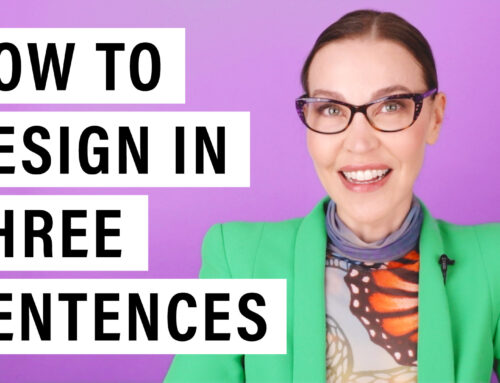
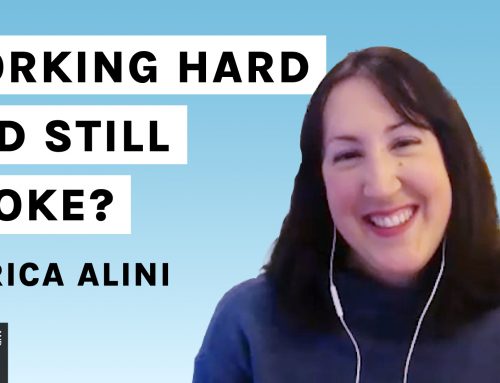
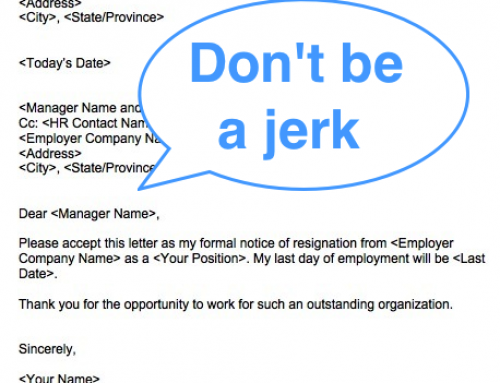
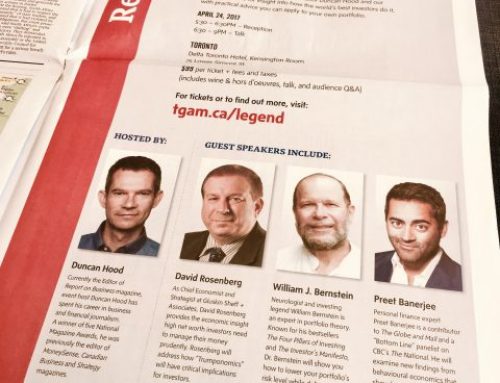
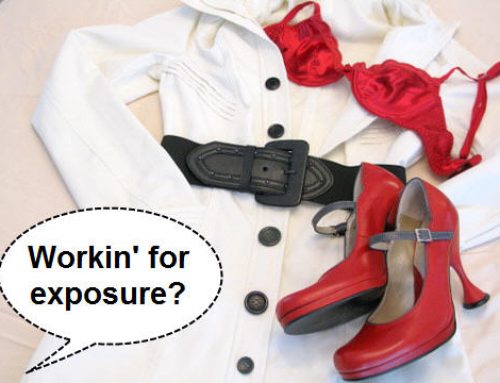
Great interview Kerry! My favorite question was the one about frugality.
Hey Shoe Girl,
This is a great read!! Love the questions you asked, and the answers shared by Robert. And now…I want me one of those smart cars, too!! (I’ll probably skip the boots, though…)
Hi Kerry,
Great interview! (And I love the outfit too!) I thought the questions were great and definitely gave me a different perspective on Robert compared to his TV personality. One thing I would be curious about is if Robert had to give up anything to achieve his success. I often wonder what trade offs people make in order to achieve their dreams (i.e. family, hobbies, etc.).
He’s a runner too. That’s two pieces of common ground.
Good job.
So, did you feel relaxed, appropriately dressed, and confident in the interview after all, after your Smart car opener?
Great interview! I like your set of questions.
I haven’t read his book but I am interested now. Some questions that would have been interesting; what is biggest failure was (how he got back up afterwards too) and what his biggest success was.
Cheers!
Awesome interview! you hit on all the questions that i would have asked!
Hi Kerry, I enjoyed your interview. I started reading Robert’s book a last month while on vacation. I enjoy his perspective and agree with his approach to success. The most important fact your interview exposed is money can’t buy you happiness, just the luxury to know that people and our relationships with them have more value and wealth then anything else. I will be sure to follow your blogs. Best Regards, Tyler
what did robert herjavec make any major mistakes or bad decision?
in what way was robert herjavec’s life despicable?
Kerry, I really enjoyed reading this interview. I find getting into the mind of how wealthy people think is really interesting.
Interesting to note about his views on frugality, which tends to be a scarcity mindset. Robert seems to be set on abundance mode and comes out smiling all the way to the bank….driving in his smart car of course
The one contradiction in his reply that floors me…”But I can’t stand Starbucks. You know why I can’t stand Starbucks? A coffee is $4 bucks. Tim Horton’s a $1.72 — I get an extra large regular. I can’t do that. I can’t pay that kind of money, ’cause I look at it and I’m thinking — I could go to Tim Horton’s and get a coffee for $1.72”.
That’s rather hypocritical of him who has “two Lamborghinis, a Mercedes-Benz SLS AMG, a Rolls Royce Phantom, and a Bentley Continental GTCW — just to name a few”.
That’s why he upgraded his wife after 20+ years of marriage!